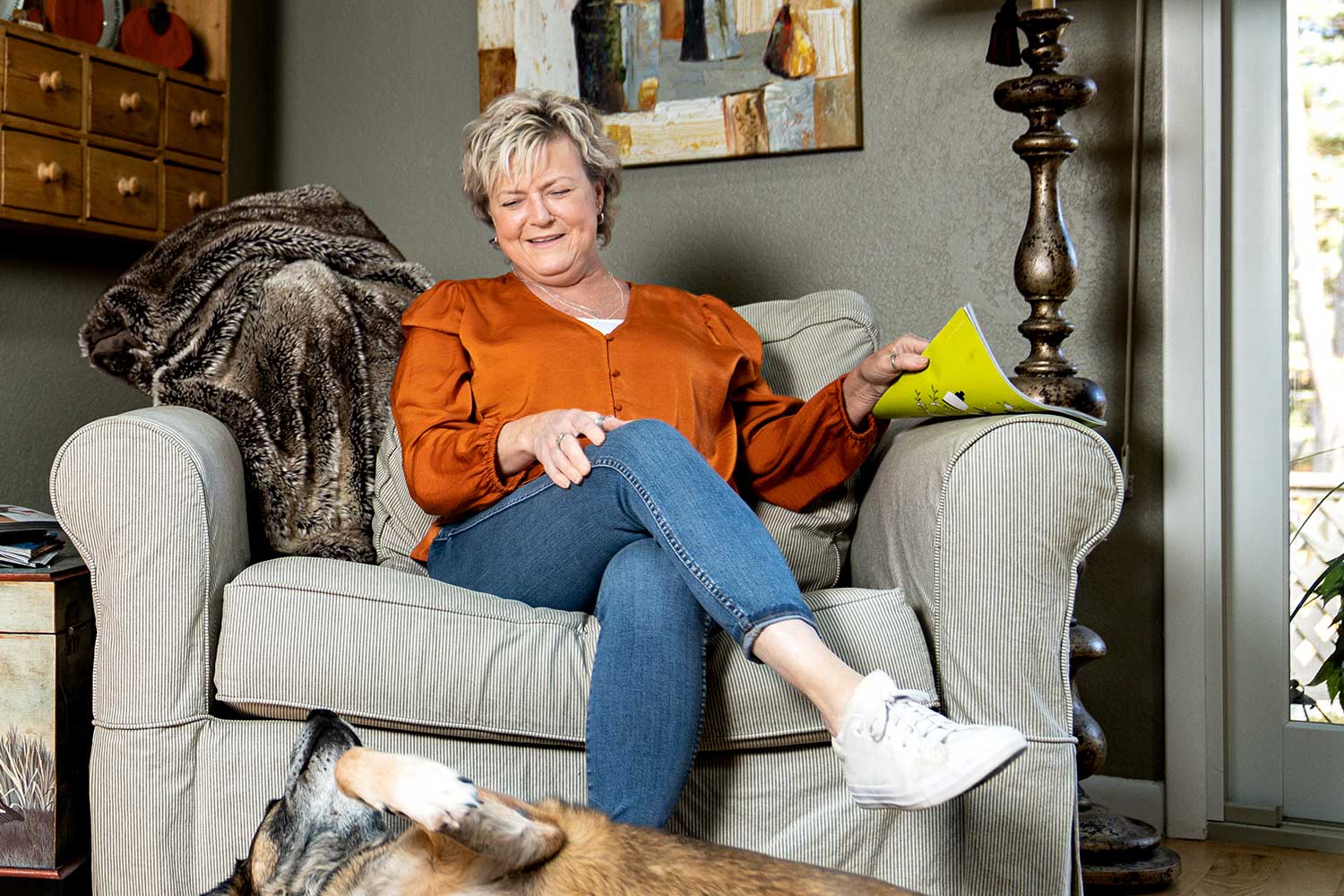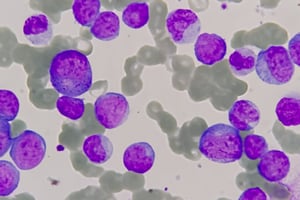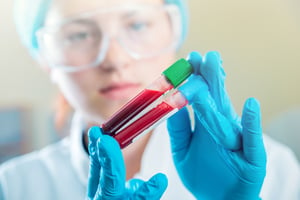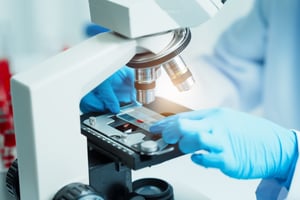Leukemia Care
The Most Advanced Leukemia Treatment in Colorado
The hematologic oncologic researchers at Rocky Mountain Cancer Centers have been instrumental in developing new therapies that have transformed leukemia treatment and prognosis. Our team of leukemia specialists is here to guide you and your family through every step of creating a personalized treatment plan.


Teaming Up to Protect Your Health
In addition to a highly qualified leukemia doctor, your team at RMCC includes nurses, counselors, and various support staff who share a common goal – protecting your health. Our coordinated approach to leukemia treatment, delivered with sensitivity and kindness, ensure you receive the absolute best care possible.
What to Do Next If You've Been Diagnosed with Leukemia
After being diagnosed with leukemia, it’s understandable that you may have questions about what you will face in the coming days, weeks, and months. At Rocky Mountain Cancer Centers, our goal is to help you address some of the questions head-on, so you can properly prepare for your first appointment.
Leukemia Clinical Trials & Research
Our doctors have been influential in pioneering groundbreaking new therapies that offer unprecedented hope to patients with blood cancers like leukemia. Advancing cancer care through blood cancer research and innovation is part of our mission. As part of the national US Oncology Network, we are able to provide access to the latest cancer treatments and therapies available through clinical trials.
In recent years, there has been steady advancement in the treatment of leukemia thanks to clinical research and patients who are willing to participate in trials that prove the safety and effectiveness of these new and better treatments. Our oncologists continue to actively participate in multiple clinical trials that focus on the genomics of leukemia and how to tell the immune system to respond against blood cancer cells.
Leukemia Treatments & Programs Available Through RMCC
We invite you to explore these pages to learn more about the disease, including signs and symptoms, types, diagnosis, and what treatment options you have. We are here to provide support and answer any questions you have about leukemia.
Signs & Symptoms of Leukemia
The quicker you can recognize the symptoms of leukemia, the better you can improve your chances of receiving a timely diagnosis and prompt treatment.
Diagnosing Leukemia
Since there is no standard screening process for detecting early-stage leukemia, it is important to see your doctor regularly for a checkup.
Types of Leukemia
Leukemia is not one disease, but several— and while they all affect the blood, not all are created equal. Some leukemias are considered ‘acute’ and others, ‘chronic.’ There are even those that emerge from ‘myeloid’ cells versus ‘lymphoid’ cells.
Staging Leukemia
We invite you to explore these pages to learn more about the disease, including signs and symptoms, types, diagnosis, and what treatment options you have. We are here to provide support and answer any questions you have about leukemia.
Leukemia Treatment Options
Before making the decision on the type of leukemia treatment you’ll be receiving, your cancer care team will take certain factors into consideration such as the type and cell features of your leukemia, along with others.
Causes & Risk Factors of Leukemia
While the exact cause of someone’s leukemia is typically unknown, we do understand that there are certain risk factors that are linked to the disease. Become aware of these risk factors and talk to you doctor if you feel that you make be at an advanced risk.
Helpful Tips and Information About Blood Cancers

How Acute Myeloid Leukemia (AML) is Different from Other Blood Cancers
Blood cancer is a broad category that includes several different types of cancer that start in the bone marrow. As the cancer cells grow, the body...

New Immunotherapy for Non-Hodgkin Lymphoma Subtype Showing Promise
You might not be aware that non-Hodgkin lymphoma (NHL) is actually a large group of blood cancers that encompasses more than 60 different subtypes....

Which Tests Are Used to Diagnose and Stage Non-Hodgkin Lymphoma?
Non-Hodgkin lymphoma is a type of blood cancer that develops in the lymphatic system, part of your immune system. The lymphocyte cells, a type of...

How Bone Marrow Transplants are Used to Treat Blood Cancers
Bone marrow transplants are a special type of treatment that is recommended for patients who have certain types of blood cancers and diseases. While...

Leukemia and Lymphoma: The Differences and Similarities
Author: John M. Burke, MD
Many types of cancers start in blood cells. Two common types are leukemia and lymphoma. The two cancers have much in...

Common Symptoms of Leukemia
Author: Chris Benton, MD
Leukemias are certainly not the most common cancer diagnosed in the U.S., but they are more common than many people realize,...

Hodgkin Lymphoma’s Survival Rate: What to Know About This Disease
Author: Paul A. "Tony" DeCarolis, MD
Named after Sir Thomas Hodgkin, the British doctor who discovered the disease, Hodgkin lymphoma is considered a...

What Are the Signs of Lymphoma?
If you’ve noticed a lump in your neck, under an arm, or in the groin area it’s a good idea to monitor it and check for other symptoms of a blood...
